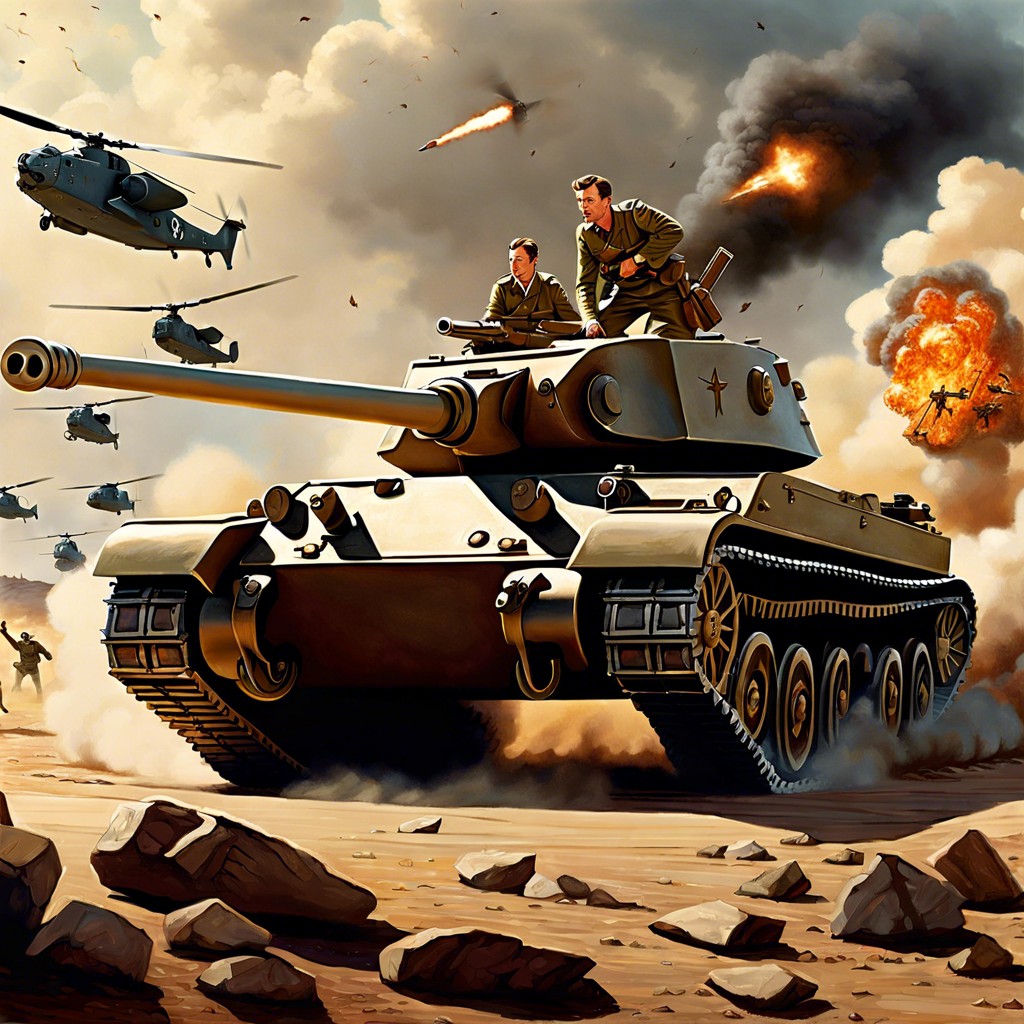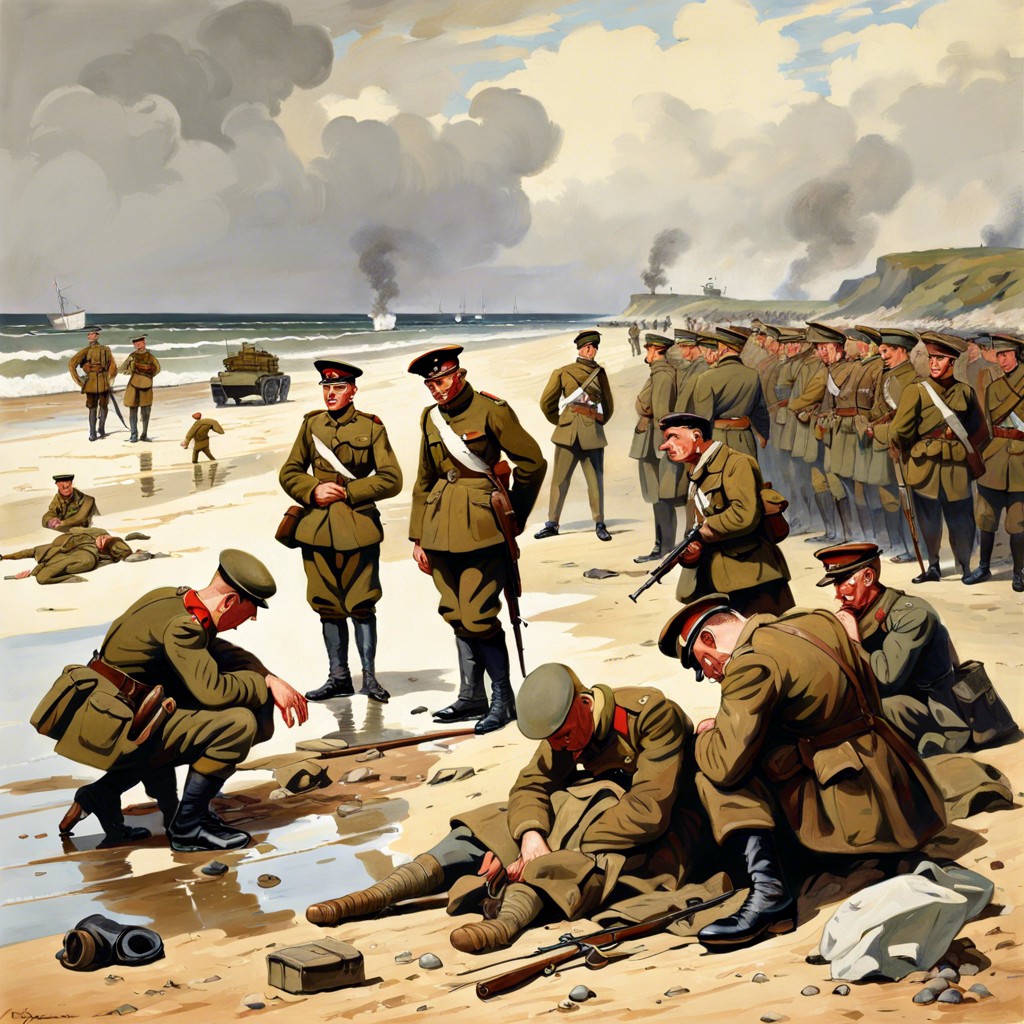Discover what could have happened if the Cuban Missile Crisis escalated into full-scale nuclear war, including potential impacts and historical consequences.
Ever wondered what would have happened if the Cuban Missile Crisis turned all “Michael Bay” on us? Imagine immediate military chaos, nuclear fireworks lighting up the sky, and global trust falling apart faster than a cheap suit in the rain. Dive in to explore the environmental carnage, societal meltdowns, and the Herculean task of rebuilding a world reduced to radioactive rubble. Spoiler alert: it’s not pretty, but it’s wildly fascinating!
Key takeaways:
- Total chaos: military engagement, massive losses, devastating aftermath.
- Environmental devastation: radioactive fallout, crippled ecosystems, health risks galore.
- Shifts in power: new alliances, global repositioning, post-apocalyptic Game of Thrones.
- Societal breakdown: infrastructure gone, economy tanked, mental health crisis.
- Economic aftermath: global recession, infrastructure rebuilding, financial chaos.
Immediate Military Engagement and Catastrophic Losses

All that diplomatic tension would have snapped, and military forces would clash. Picture this: U.S. and Soviet forces racing to launch their arsenals.
Imagine fleets converging in the Atlantic, hurling torpedoes, firing missiles. The skies filled with warplanes. Chaotic air battles above land and sea. It’s not your average Saturday.
Let’s talk losses. Nuclear bombs would rain down on key cities. Military bases targeted first. Immediate mass casualties, destruction on an apocalyptic scale.
Chain reaction. Allies dragged in. European cities, too. Missile silos, carriers, submarines – all looking for any chance to strike first.
In minutes, devastation would spiral uncontrollably.
Amidst this, ordinary soldiers caught in the frenzy. Thousands perishing in the blink of an eye. Total havoc. Fiery chaos.
The human cost would be unfathomable. And lasting.
Worldwide Nuclear Fallout and Environmental Devastation
Imagine living under a gray sky, not from gloomy weather, but from radioactive dust lingering like a ghost. That’s what we’d face.
First, massive radiation exposure. Clouds of fallout would spread far and wide, contaminating the air, water, and soil. Thinking of drinking water? Think again as it’s now a hazardous cocktail.
Farming would take a nosedive. Crops wouldn’t just fail—they’d radiate danger. Forget apples a day; we’d be dodging radioactive apples, possibly with attitude.
Wildlife wouldn’t be spared either. Picture mutant squirrels—cute? Perhaps not. Ecosystems would collapse, causing ripple effects up the food chain. Yikes.
Lastly, say goodbye to sunny beach days. Skin cancer rates could skyrocket. Even a casual stroll outside might mean radiation exposure.
Fun, isn’t it?
Shifts in Global Political Alliances and Power Structures
The global chessboard would flip. Think of it as a real-life Game of Thrones, but with less dragons and more nuclear fallout.
Firstly, NATO and the Warsaw Pact would find themselves in apocalyptic scenarios, scrambling to reposition. Smaller nations, acting like high schoolers deciding which clique to join, might frantically switch sides for survival.
Secondly, the U.S and the Soviet Union, the big bullies on the block, might be torn down a few pegs. The UK, France, and China could strive to fill the power vacuum, both licking their wounds and sharpening their claws.
Meanwhile, non-aligned countries, previously enjoying their neutrality, might be thrust into taking sides, just to secure a seat at the post-apocalyptic table.
Expect to see new alliances sprouting like mushrooms after rain—only this time, the rain is radioactive.
Civilian Impact and Societal Breakdown in North America and Europe
Picture this: cities reduced to rubble, grocery stores stripped bare, and power grids as useful as a chocolate teapot.
Firstly, say goodbye to Netflix binges. The infrastructure keeping society humming would be obliterated. Hospitals overwhelmed. Cities like New York, London, and Moscow transformed into eerie ghost towns.
Jobs? What jobs? The global economy would nosedive, leaving millions unemployed. Hyperinflation would make buying a loaf of bread feel like investing in a small yacht.
Mental health would plummet, with apocalyptic anxiety becoming a national pastime. Communities would either band together or tear apart like an elaborate Netflix drama.
Education would take a backseat as schools become shelters and kids inadvertently learn survival skills instead of algebra. And speaking of survival, expect ration lines longer than Black Friday queues.
In essence, the Cuban Missile Crisis going hot would turn daily life into a dystopian novel no one wants to read.
Long-term Economic Consequences and Reconstruction Challenges
The aftermath would leave the global economy in tatters. The destruction of key manufacturing hubs and ports would create a ripple effect, causing supply chains to vanish into thin air. Imagine trying to find a loaf of bread or a working toaster—a treasure hunt, but without the fun.
Now, think about the infrastructure. Roads, bridges, and power grids would be vaporized or at least badly damaged. Rebuilding these essential components wouldn’t be a weekend DIY project. Governments would scramble to gain the resources and manpower needed, stretching budgets thinner than a pancake.
Currencies might as well be Monopoly money. Hyperinflation would run rampant as nations print money in desperation. Financial markets? More like financial minefields. Investors would be huddled in the corner, clutching their now-worthless stock certificates.
Agriculture would face its own apocalypse. Nuclear fallout doesn’t exactly make for good fertilizer. Farms would struggle, leading to widespread food shortages. Grocery stores would be emptier than a New Year’s resolution gym.
And then there’s the human capital. Cities previously teeming with workers and innovators would be ghost towns. The labor force would need major reconstitution, and that’s if people are even willing to return to urban areas.
Aid and humanitarian efforts would be monumental. Nations not directly affected would have their compassion cards maxed out, leading to interesting geopolitical strings attached to any help offered.
So, yes, the economic consequences would be daunting, and the reconstruction? Even more so.




